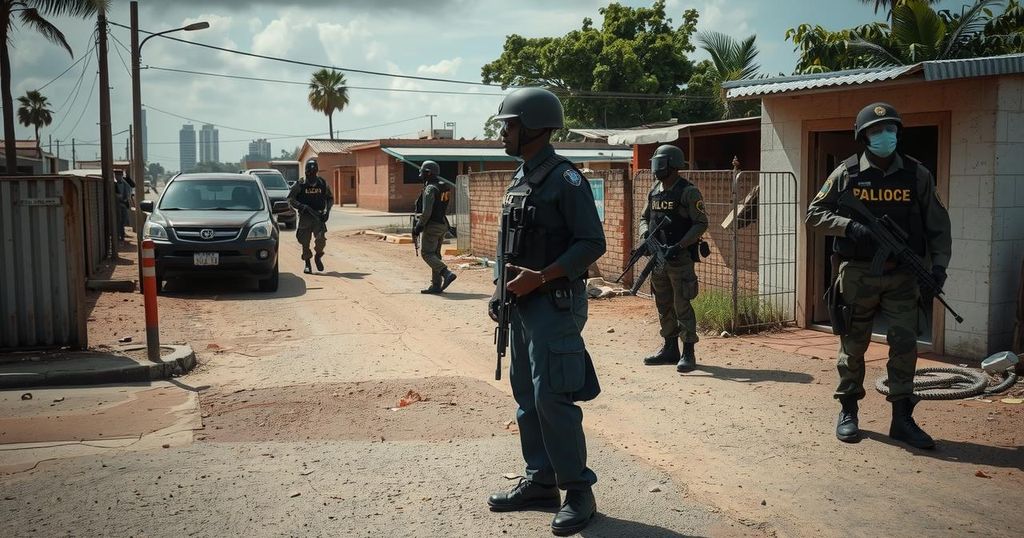Escalating Violence in Mozambique Following Controversial Election Results
Violence in Mozambique has escalated after the Supreme Court confirmed the ruling Frelimo party’s election victory, leading to at least 21 deaths and widespread unrest. Protests erupted in multiple cities, and the opposition claims the election was rigged, demanding electoral integrity. Despite the turmoil, the new president has pledged open dialogue with all parties involved.
In Mozambique, violence has erupted following the confirmation of election results that favor the ruling Frelimo party, which has been in power since 1975. At least 21 individuals, including two police officers, have lost their lives amidst the unrest which began after the country’s highest court validated presidential election results on Monday. The Interior Minister reported 236 violent incidents nationwide, resulting in injuries to at least 25 people, including 13 police officers, and the arrest of over 70 suspects.
In the capital, Maputo, tension mounted as demonstrators clashed with law enforcement, leading to significant disturbances and property damage across the city. Protesters erected makeshift barricades and set various establishments ablaze, triggering widespread fear and community disruptions during what is traditionally a festive holiday period. With heavy police presence and a notable decline in public engagement, the situation reflects deep societal divisions and grievances regarding the election process.
Violence has spread to other cities in northern Mozambique, with severe protests reported in Cabo Delgado, Nampula, Zambezia, and Tete, areas known for strong opposition support. The opposition leader, Venâncio Mondlane, who claims the election was fraudulent, has called for continued resistance and unity among his supporters as more than 100 people have already perished in the ongoing unrest.
Despite the turmoil, newly elected president Daniel Chapo has expressed a desire for dialogue, promising to engage with all factions in an effort to alleviate tensions. This complex situation highlights the critical political unrest and societal vulnerabilities within Mozambique, necessitating urgent attention from various stakeholders to restore order and rebuild trust among the populace.
The recent post-election violence in Mozambique stems from the controversial reaffirmation of election results by the country’s highest court, which confirmed the ruling Frelimo party’s victory. This outcome has provoked widespread unrest, with the opposition vehemently contesting the legitimacy of the elections and alleging serious irregularities throughout the voting process. Historical tensions between the ruling party and opposition forces exacerbate the climate of violence and unrest, leading to significant loss of life and property. The current situation is further aggravated by the near-simultaneous occurrence of the election period with the traditional Christmas holiday season, intensifying public dissatisfaction against a backdrop of political strife.
The situation in Mozambique is critically tense following the validation of electoral results that have been met with significant public opposition and unrest. At least 21 deaths and numerous injuries have been reported in the past 24 hours, highlighting the severity of post-election violence fueled by accusations of electoral fraud. As both sides grapple with the ramifications of the election, it remains essential for dialogue and reconciliation efforts to move forward in order to restore peace and address the underlying political discontent within the country.
Original Source: www.lemonde.fr




Post Comment